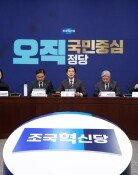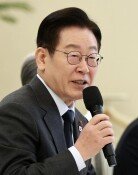Gov’t re-measures power demand for this summer
Gov’t re-measures power demand for this summer
Posted July. 30, 2018 07:48,
Updated July. 30, 2018 07:48
The government has decided to identify the reasons for the failure in predicting maximum electricity needs for this summer, and then modify the figures.
The Korea Power Exchange said on Sunday that it would find out why power demands turned out to be inaccurate during a gathering with private-sector experts and relevant government bodies such as the Ministry of Commerce, Industry and Energy and the Korea Meteorological Administration. This summer’s maximum power demand will be updated around Aug. 3 at the soonest. The government expects that this summer will see power demand reach the peak by the second week of August, around which companies gear up back to normal operation after their employees return from vacation.
Previously, the government’s power supply plan for this summer was published on July 5 to project the maximum to be around 88.3 million kW, forecasting that the peak will be recorded around the second or third week of August. However, the plan dated July 5 was an already revised one compared to the 8th power supply plan, which was announced last December, where the maximum was foreseen to be 87.5 million kW. Releasing the 8th plan, the government stated that it would reduce the figure to 86.1 million kW by controlling power supply and demand, which has ended up in a failure.
The highest power demand reached 90.7 million kW on July 23, soaring to as high as 92.48 kW next day, which exceeded the government’s projections modified on July 5. As the holiday season has just begun with heat waves calming down slightly, power demands saw a minor reduction between July 25 and 27. Nevertheless, they still remain within the 90 million kW range.
Experts are concerned that the government attributes the failure in power demand projections solely to heat waves, and it simply tweaks near-term figures. Park Gwang-soo, a senior researcher at the Korea Energy Economics Institute, said that it is important to find out the reasons behind the inaccurate projections, adding that it should be clear as to whether abnormally high temperatures were a sole cause, or any error has occurred in the forecasting system. He also emphasized that once reviewed, such data should be applied to a next power supply plan.
Lee Sae Saem iamsam@donga.com







